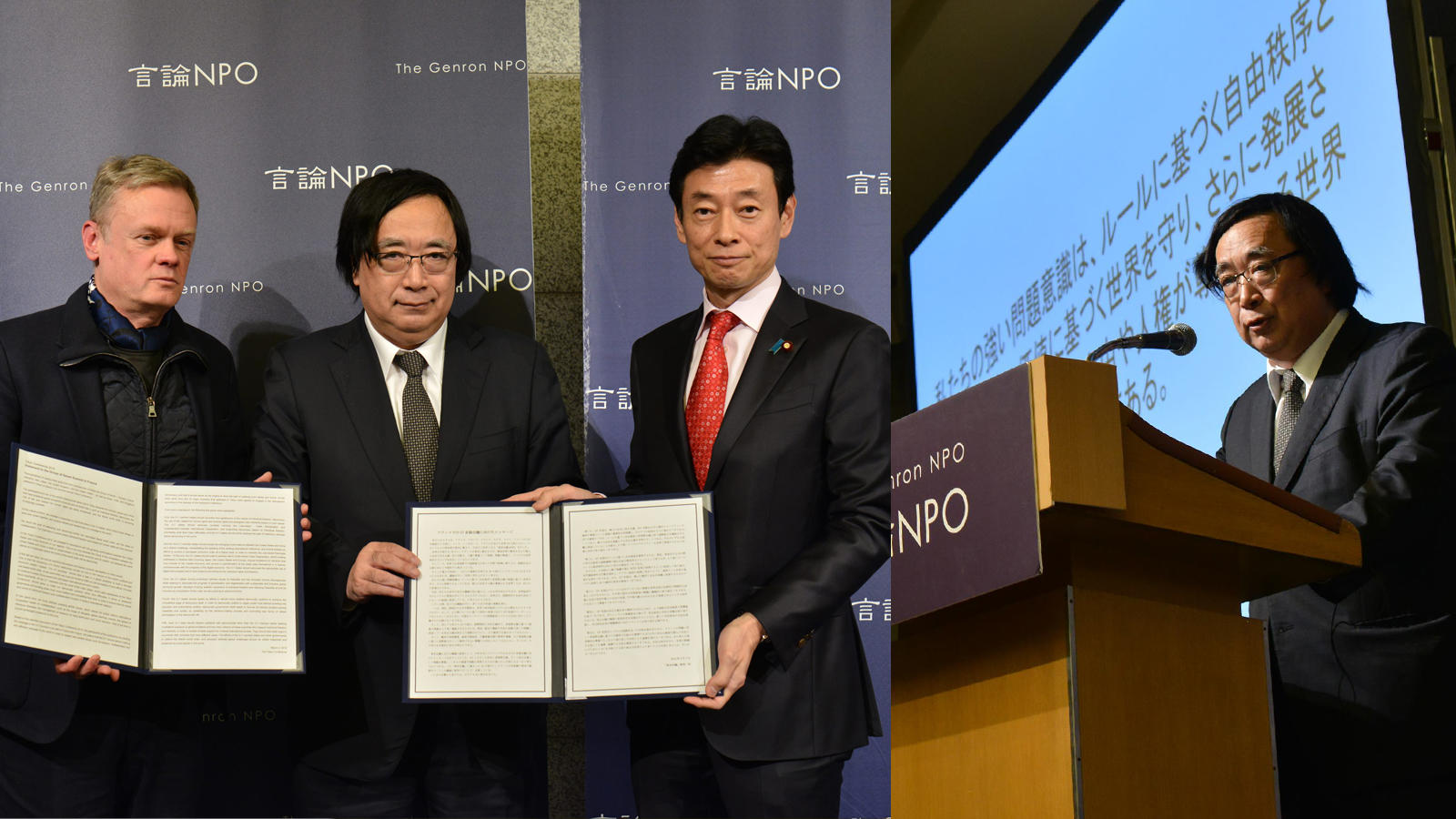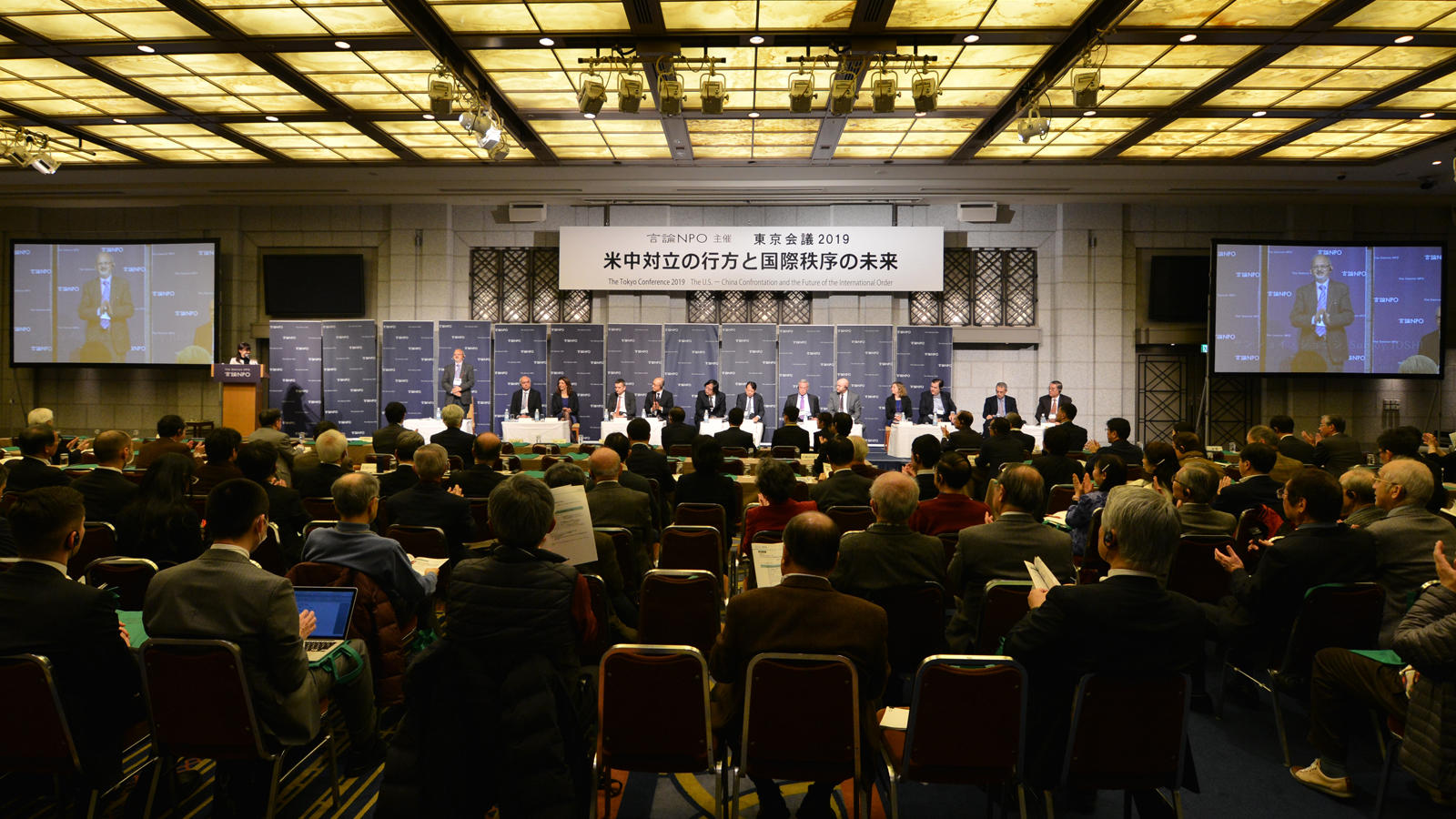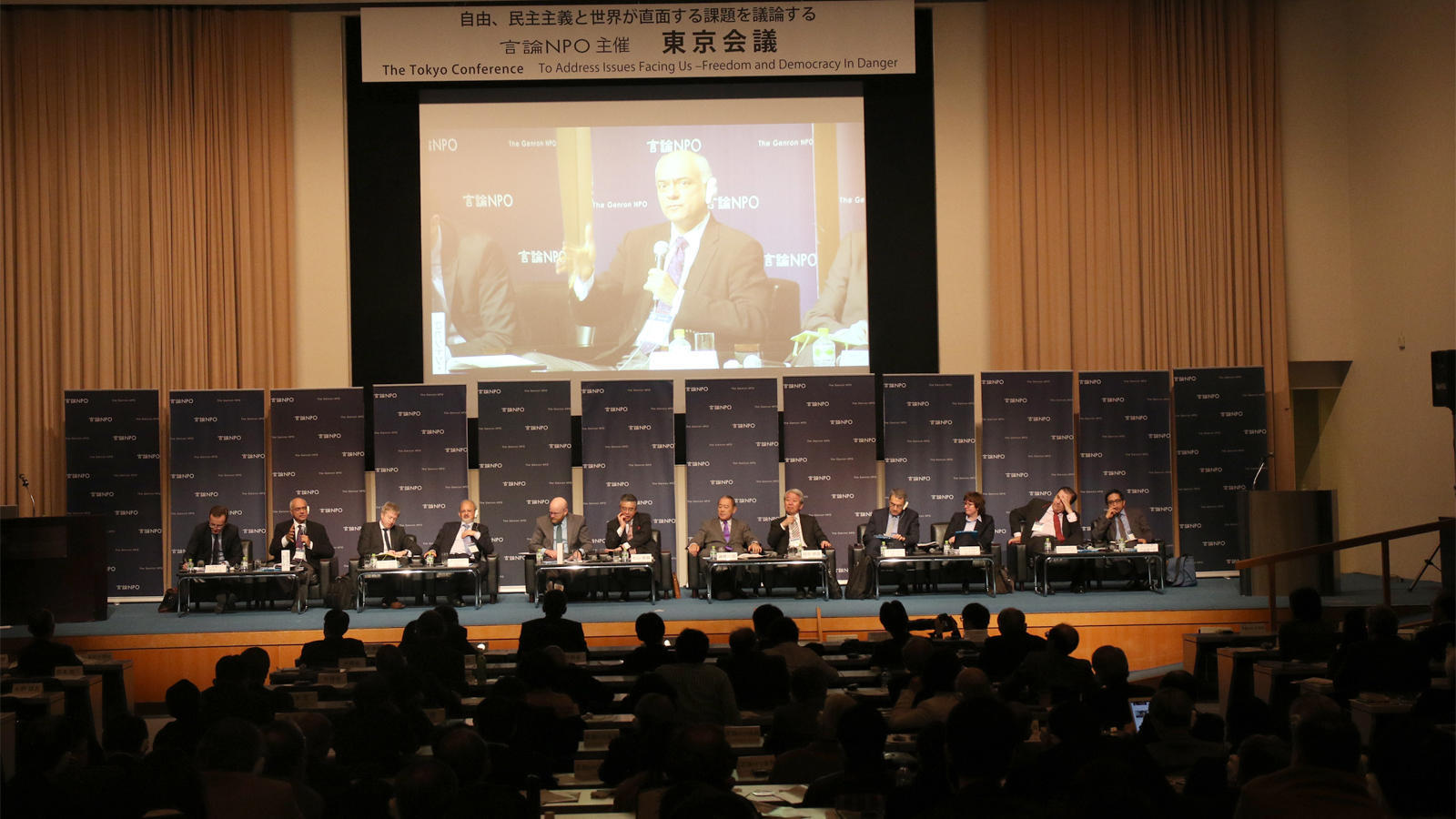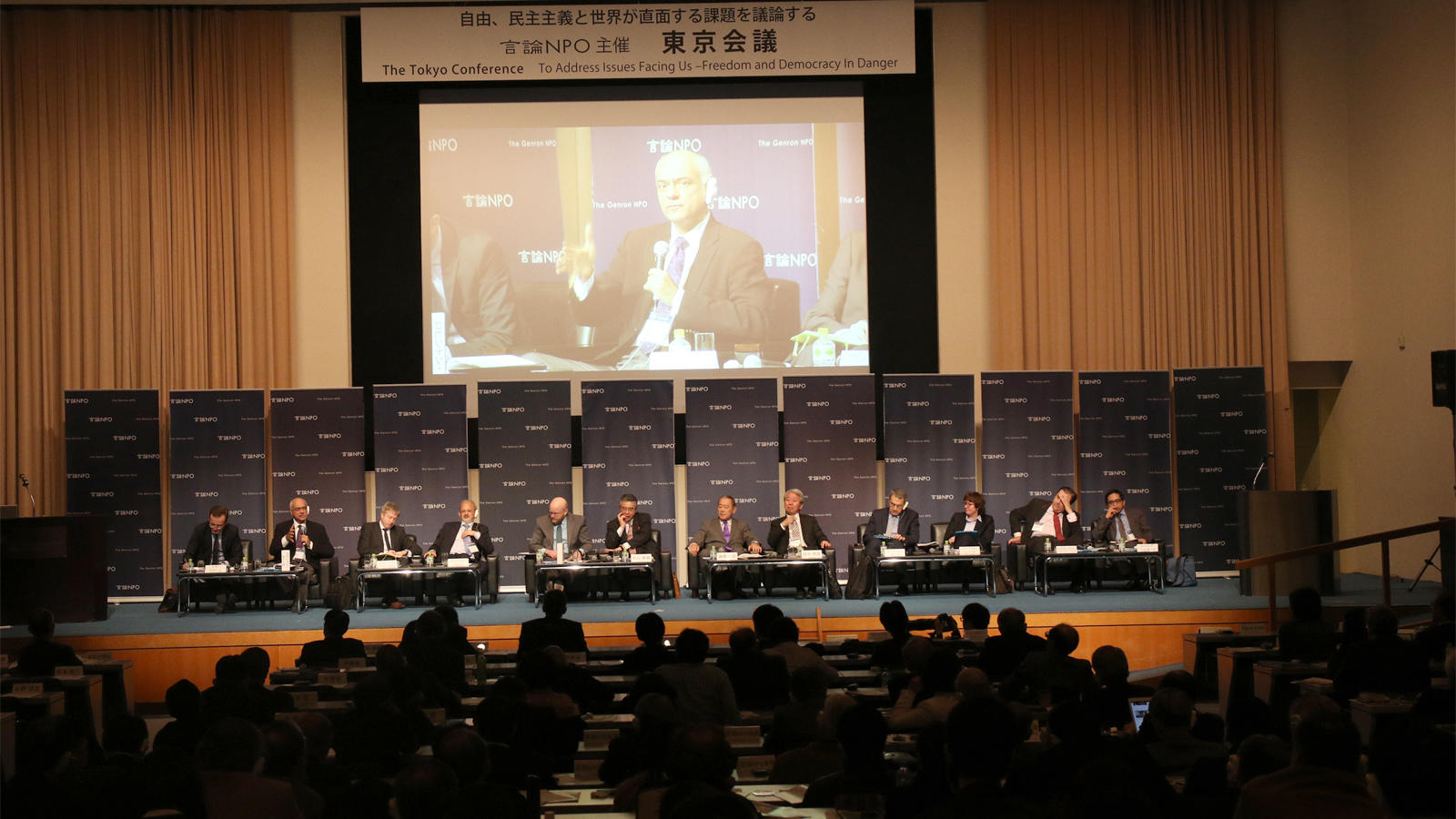Representatives of leading think tanks from the countries that comprise the Group of Seven - Canada, France, Germany, Italy, Japan, the United Kingdom, and the United States - as well as Brazil, India, and Singapore gathered in Tokyo on March 3 for the third annual Tokyo Conference.
The participants from ten of the world's leading think tanks met in Tokyo because the common values and norms that have sustained global prosperity since the end of World War II, such as individual freedom, democracy, the rule of law and respect for human rights are being threatened, and the liberal world order is becoming increasingly unstable.
At this critical juncture, we consider it imperative for the think tanks in the 10 states, which share these values, to work ever closer together, and conduct debate and disseminate our message to the world.
We share the goal of defending and advancing further the rule-based liberal world order, and the value of multilateralism. Our hope lies in a world where individual freedom and respect for human rights are fully honored.
At the Tokyo Conference 2019, we engaged in discussions with the growing confrontations between the United States and China foremost on our agenda. This is not only because the future of the competition between the United States and China is likely to cause tension in the world economy and its system, but because the world stands at a crossroads where the future of the world order will be determined.
In the last two days, we had far-reaching discussions and shared common perceptions on many issues.
One is that the worsening U.S.-China relationship should not end in the fracture of the world's political and economic system. Instead, The G7 countries should take a lead in a global endeavor to build a stronger rule-based world order. At the same time, we must join forces to fulfill our role as leaders of such efforts. It is wise to continue to press China toward the rule-based international economic system.
More importantly, all the G-7 members and the other three major states, which were represented at the Tokyo Conference, should strive to make our democratic systems, which face difficulties in terms of weakened governance and eroding public trust, more resilient and competitive than ever, in order to ensure that the values and norms of individual freedom and multilateralism function in today's international relations.
At the same time, we must address pressing global issues, which cannot be solved without international cooperation based on multilateralism, such as the surge of refugees, global warming, poverty, the spread of infectious diseases, the management of weapons of mass destruction and arms reduction. Now is the time to launch full-fledged endeavors to this end.
Based on the intensive discussion at the Tokyo Conference 2019, the participants of the conference are sending the message to the G-7 Summit to be held in France this August. We believe that the G-7 should deliver a strong and effective message to the world in order to respect and protect values such as freedom, multilateralism and democracy, and that it should serve as the engine to drive the task of realizing such values and norms. All the think tanks from the 10 major countries that gathered in Tokyo have agreed to engage in the discussions according to the statutes of the respective institutions.
From such a standpoint, the following five points were highlighted.
First, the G-7 member states should reconfirm the significance of the values of individual freedom, democracy, the rule of law, respect for human rights and minority rights and strengthen their solidarity based on such values. The G-7 states should seriously consider reviving the rule-based trade liberalization and multilateralism-oriented international cooperation, and supporting democracy based on individual freedom. Admittedly, both face major difficulties, and the G-7 states should jointly address the task of realizing a stronger liberal democracy in the world.
Second, the G-7 member states should accept the emerging confrontations between the United States and China as a historic challenge, necessitating the updating of the existing international institutions, and should embark on efforts to pursue a rule-based economic order at a higher level, in order to maintain the rule-based free-trade system. To this end, the G-7 states should unite to achieve reform of the World Trade Organization, which is being addressed in trilateral talks involving Japan, the United States and Europe, impose limitations on behavior that runs counter to the market economy, and pursue a sophistication of the trade rules themselves in a manner commensurate with the progress of the digital economy. The G-7 states should advocate the appropriate use of digital technologies and AI that preserve and enhance the individual rights and freedom.
Third, the G-7 states should proactively address issues of inequality and the domestic income discrepancies while seeking to associate the progress of globalization and digitalization with sustainable and inclusive global economic growth. Standard of living, stability, expansion of individual freedom and reducing inequality should be honored as a foundation of the order we are pursuing to advance further.
Fourth, the G-7 states should speed up efforts to rebuild more resilient democratic systems to enhance the competitive edge of democracy itself. In order for democratic politics to regain public trust without tumbling into populism and authoritarian politics, democratic government itself needs to recover its intrinsic problem-solving capability and cycles, by speeding up the decision-making process and promoting new forms of citizen participation in the democratic life.
Fifth, each G-7 state should deepen solidarity with democracies other than the G-7 member states seeking multilateral solutions to global problems and the many citizens of these countries who respect individual freedom and diversity, in order to solidify broader support for a liberal international society. They should also seek ways to coordinate with countries that have different views. The efforts of the G-7 member states and other governments to defend the liberal world order, and sincerely address global challenges should be widely supported and sustained by more people in the world.
The Tokyo Conference




Post a comment